Commonwealth slavery reparations debate: What could the UK be asked to pay?
Reparations is expected to be a key talking point in Samoa
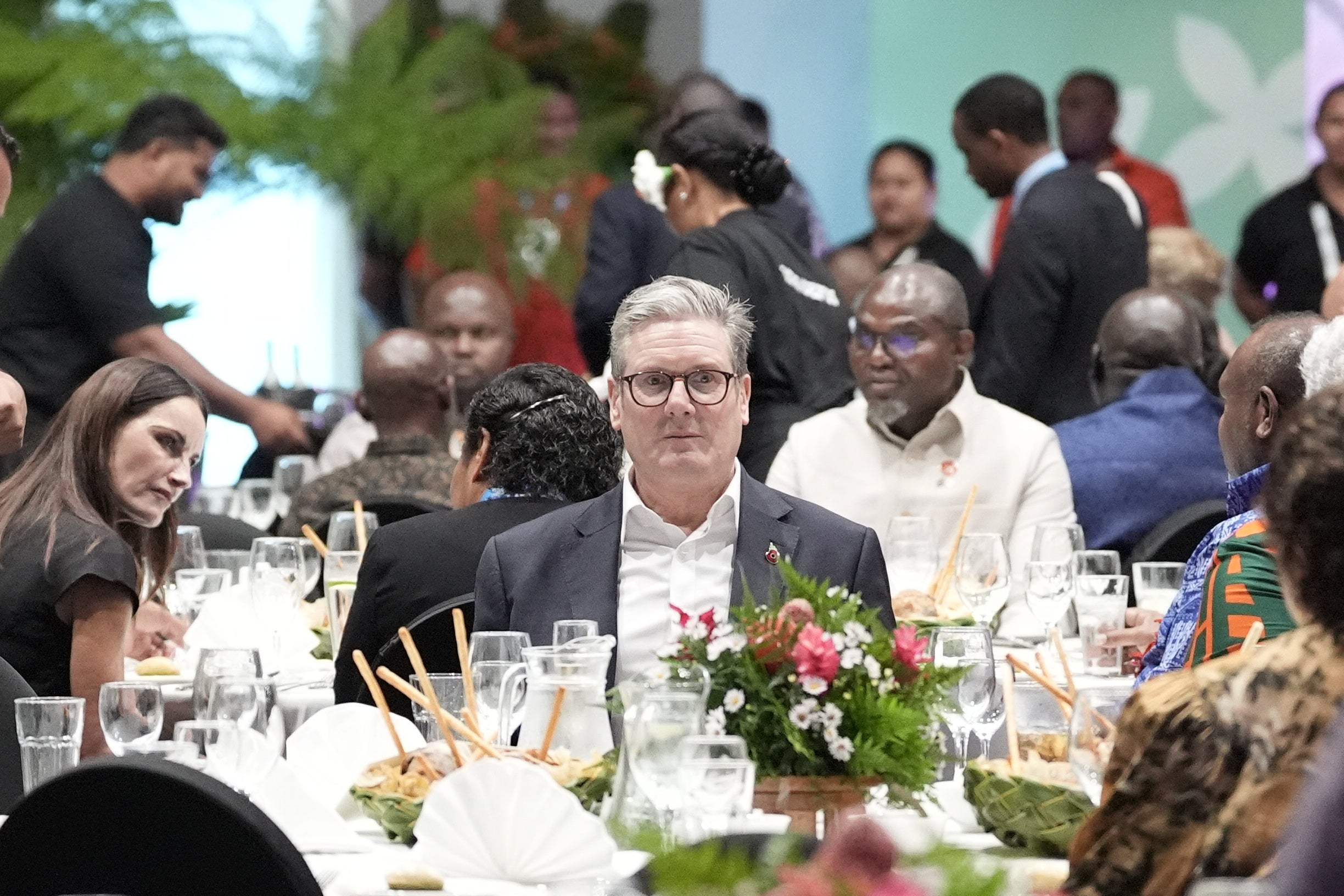
Your support helps us to tell the story
From reproductive rights to climate change to Big Tech, The Independent is on the ground when the story is developing. Whether it's investigating the financials of Elon Musk's pro-Trump PAC or producing our latest documentary, 'The A Word', which shines a light on the American women fighting for reproductive rights, we know how important it is to parse out the facts from the messaging.
At such a critical moment in US history, we need reporters on the ground. Your donation allows us to keep sending journalists to speak to both sides of the story.
The Independent is trusted by Americans across the entire political spectrum. And unlike many other quality news outlets, we choose not to lock Americans out of our reporting and analysis with paywalls. We believe quality journalism should be available to everyone, paid for by those who can afford it.
Your support makes all the difference.Keir Starmer has faced renewed calls for Britain to pay slavery reparations which could far exceed £200 billion as the Commonwealth Heads of Government Meeting (Chgom) in Samoa gets underway.
A group of 15 Caribbean governments, as part of the Caribbean Community or ‘Caricom’ organisation, have all agreed to table reparations on the Chgom agenda when the group meets.
Defying the UK, with Sir Keir saying he does not want to discuss the matter, a draft communique for the summit places it firmly on the agenda, reading: “Heads, noting calls for discussions on reparatory justice with regard to the transatlantic trade in enslaved Africans and chattel enslavement… agreed that the time has come for a meaningful, truthful and respectful conversation towards forging a common future based on equity.”
All three candidates for the position of Commonwealth Secretary-General role have supported reparations for transatlantic slavery and colonialism.
Earlier this month, Barbados’s prime minister met with King Charles at Buckingham Palace in London where she said they discussed the matter of reparations, and where she suggested a far higher figure.
Here’s everything you need to know about the debate:
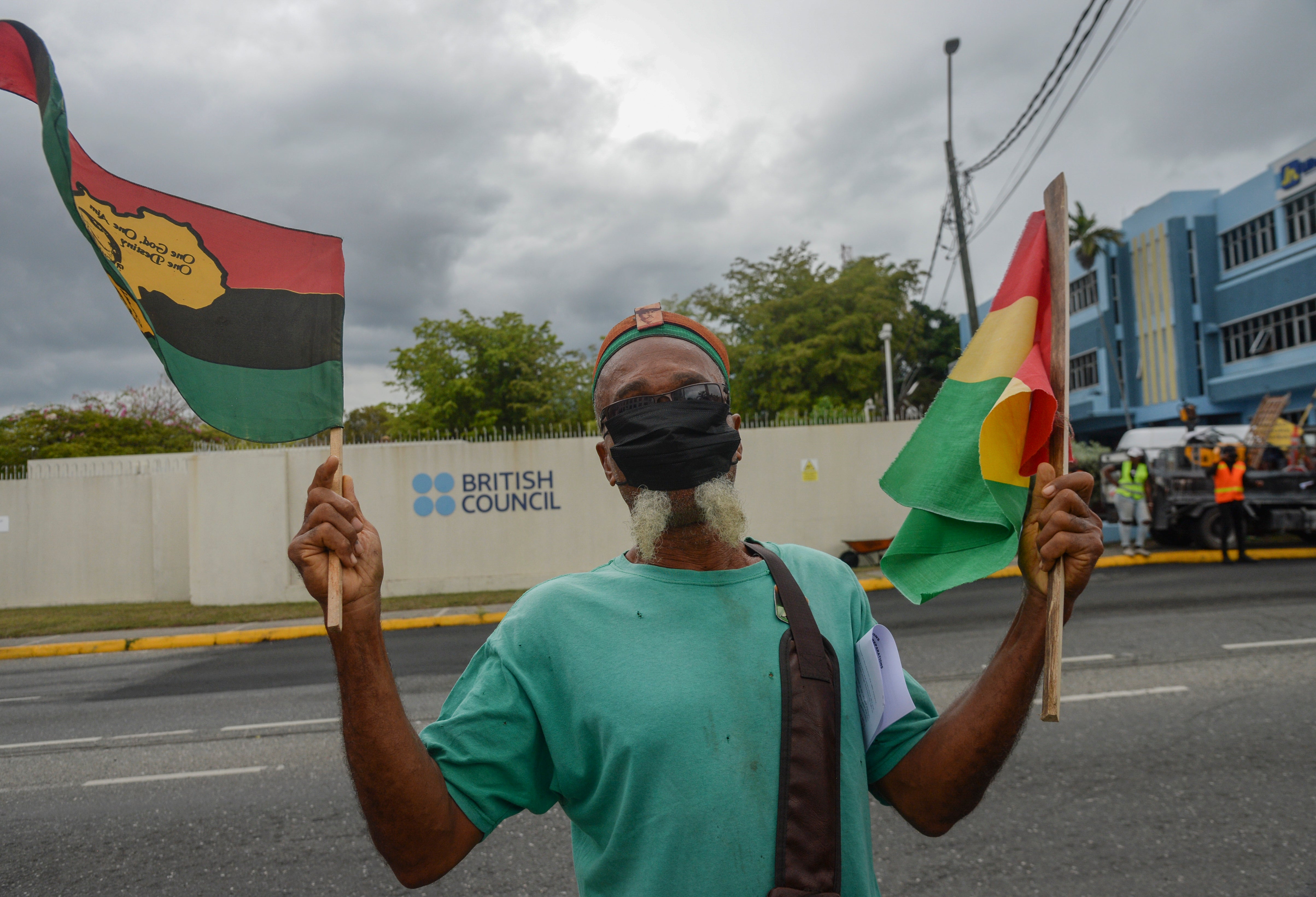
Britain’s history with Barbados
Barbados became Britain’s first slave society in 1661 and the first colony to have a “slave code” which enshrined in law that African people would be treated as chattel property and not human beings.
A number of British ships carrying trafficked African people from the continent first stopped in Barbados and the barbaric practice of brutal subjugation and indoctrination was honed here.
Members of the British royal family and UK governments were involved in the trafficking and sale of millions of African people for profit for centuries.
The captives were abducted and transported across the Atlantic to be sold as slaves to work on plantations across its Caribbean and North American colonies.
The same ships then returned to Britain carrying slave-grown produce including sugar, tobacco and cotton, then sold for profit that was pumped into Britain’s economy and infrastructure, as well as the coffers of aristocratic families.
Elizabeth I became involved in the lucrative dealings of John Hawkins, one of Britain’s first slave traders in the 16th century, with various figures and institutions across society being involved in the practice, right through to its abolition in 1834.
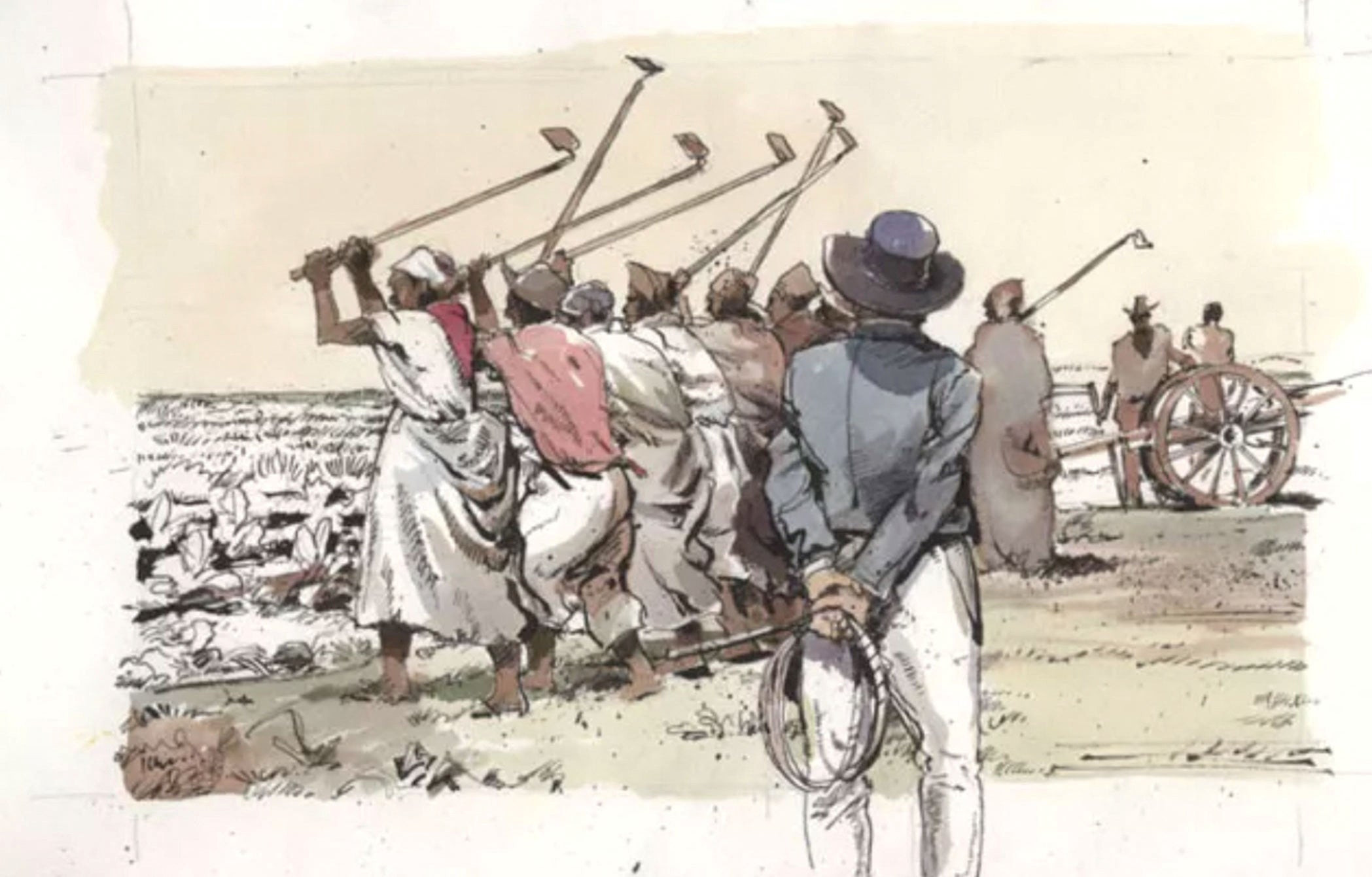
What are reparations?
Reparations are the act or process of making amends for a wrong.
Britain was involved in the trafficking and sale of millions of African people for profit for centuries. Campaigners, governments and descendants of the enslaved argue that practical amendments to the atrocities of slavery are required.
These calls have intensified in recent years with the advent of social media, politicians becoming more vocal on the topic and the growing republican sentiment sweeping across former British colonies in the Caribbean.
Far from just being about money, reparations denote the need to address contemporary inequalities faced by descendants of enslaved African people in particular, which is steeped in the legacy of colonialism.
Caricom has a ten-point plan for reparatory justice which maps out the recompense that should be carried out by European governments.
Why £200b - £19tr?
Between the 16th and 19th centuries, proceeds from the enslavement of African people funded the infrastructure of Britain.
Experts have made numerous estimations for reparations amounts over the years with varied projections about what appropriate amounts may look like.
Reverend Dr Michael Banner, the Dean of Trinity College Cambridge, hit headlines earlier this year when he claimed that Britain owed £205 billion in reparations.
Last year, a report authored by Patrick Robinson, a leading judge at the International Court of Justice, declared that the UK should pay $24tn (£18.8tn) for its slavery involvement in 14 countries.
The study was carried out by the Brattle Group, an American consultancy firm, and supported by the American Society of International Law and the University of the West Indies.
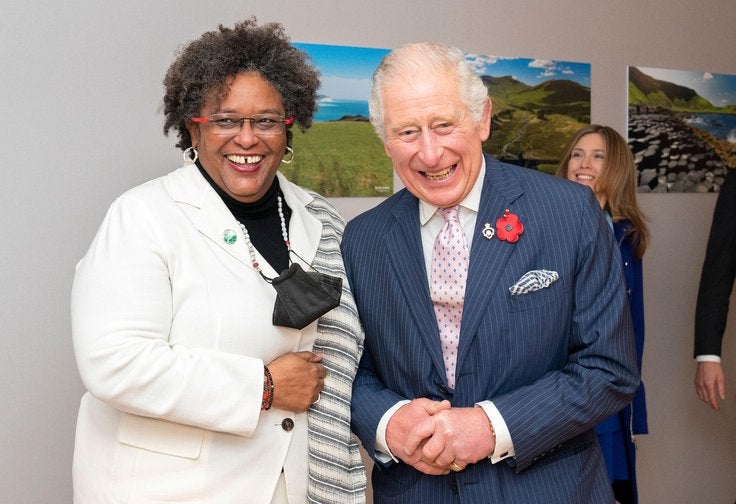
What is Britain’s response?
Successive British governments and monarchs have declined to apologise formally for the country’s mass enslavement of African people.
This week, Keir Starmer has ruled out the prospect of reparations being discussed at the upcoming CHOGM summit.
When asked about the prime minister’s view on the matter, his spokesperson reportedly said on Monday: “We do not pay reparations.”
The British Royal Family have expressed sympathies over the atrocity of slavery; most recently, Charles III described his “profound sorrow” about it during the last Commonwealth summit in Rwanda - before he became monarch - and Prince William referred to the trade in Black lives as “abhorrent” during a royal tour speech delivered in Jamaica in 2022.
Last April, Charles indicated his support for research into the royals’ links with slavery.
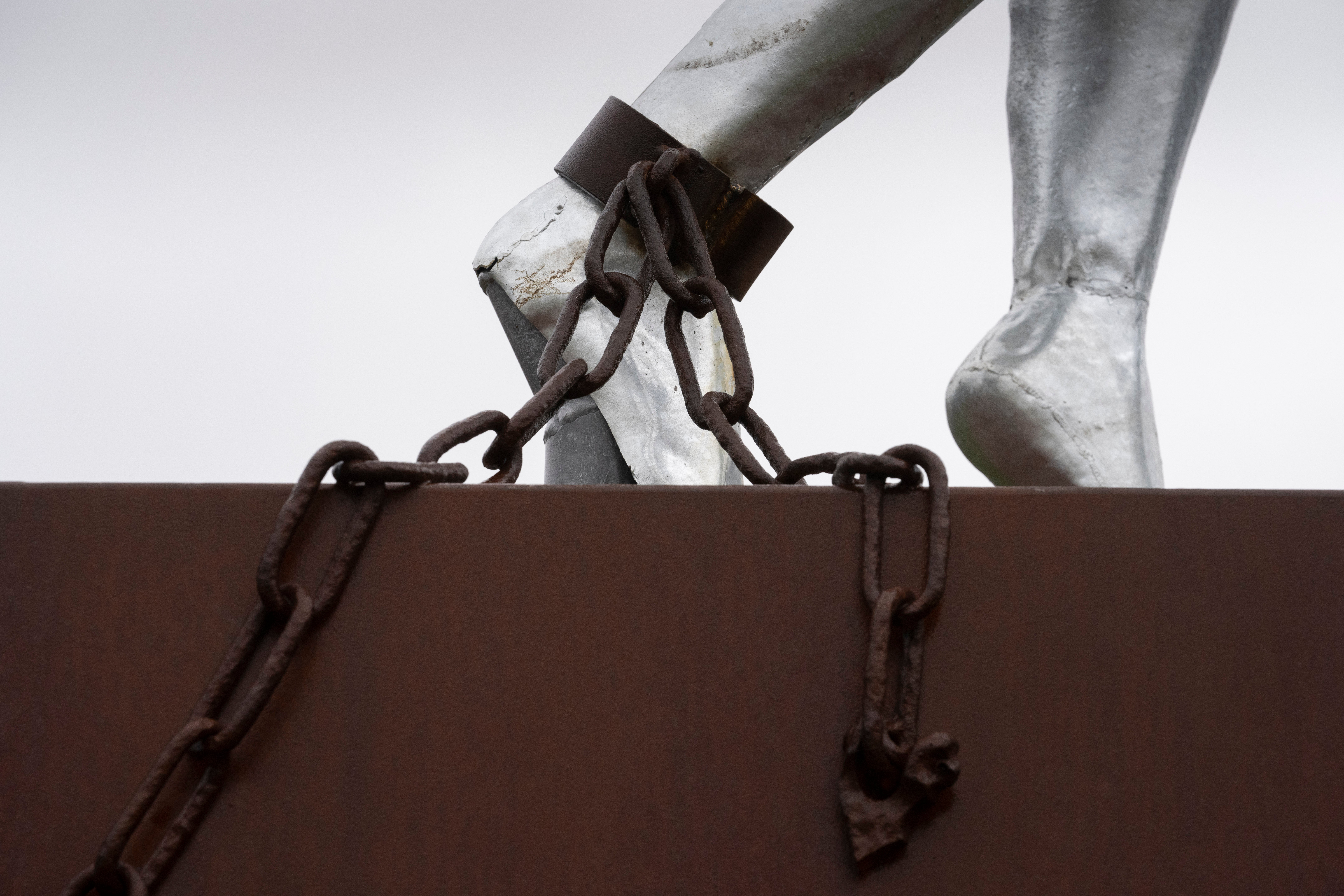
Who has engaged with the reparations demands?
A few British institutions have agreed to offer versions of redress for their role in slavery, including the Church of England, Greene King pub and brewing company, the University of Glasgow and NHS Lothian trust.
A handful of aristocratic British families with links to slavery have also apologised and attempted to make financial donations by way of amends, such as former BBC journalist Laura Trevelyan, and the family of former Prime Minister William Gladstone.
And last summer, the Dutch king, Willem-Alexander, apologised for the Netherlands‘ historical involvement in slavery and its ongoing effects, though the country’s prime minister, Mark Rutte, said the government would not pay reparations, going against recommendations made by an advisory panel in 2021. The Dutch government is currently being sued for this.
‘Britain helped to end slavery,’ historians argue, so why pay reparations?
Slavery did not end purely because of English benevolence, but largely because enslaved African people resisted through revolts and the barbaric practice was becoming untenable.
Other factors for outlawing slavery through the British parliament include the realisation among an emergent middle class that the trade was not economically beneficial to them, while wider opinion about slavery began to shift as its blood-curdling horrors became public knowledge.
Reparations have never been paid to those who were enslaved or their descendants and this is why campaigners’ demands for it continue.
On the other hand, the British government did agree to pay a generous compensation package of £20 million to the slave owners for the loss of their “property”.
The Bank of England administered the payment of slavery compensation on behalf of the British government and slave owners were paid approximately £20 million in compensation - about £300 million in today’s money - in more than 40,000 awards for enslaved people freed in the colonies of the Caribbean.
This amounted to some 40 per cent of the Treasury’s annual income - one of the largest loans in history - and the British taxpayer only finished paying this off in 2015.
Join our commenting forum
Join thought-provoking conversations, follow other Independent readers and see their replies
Comments